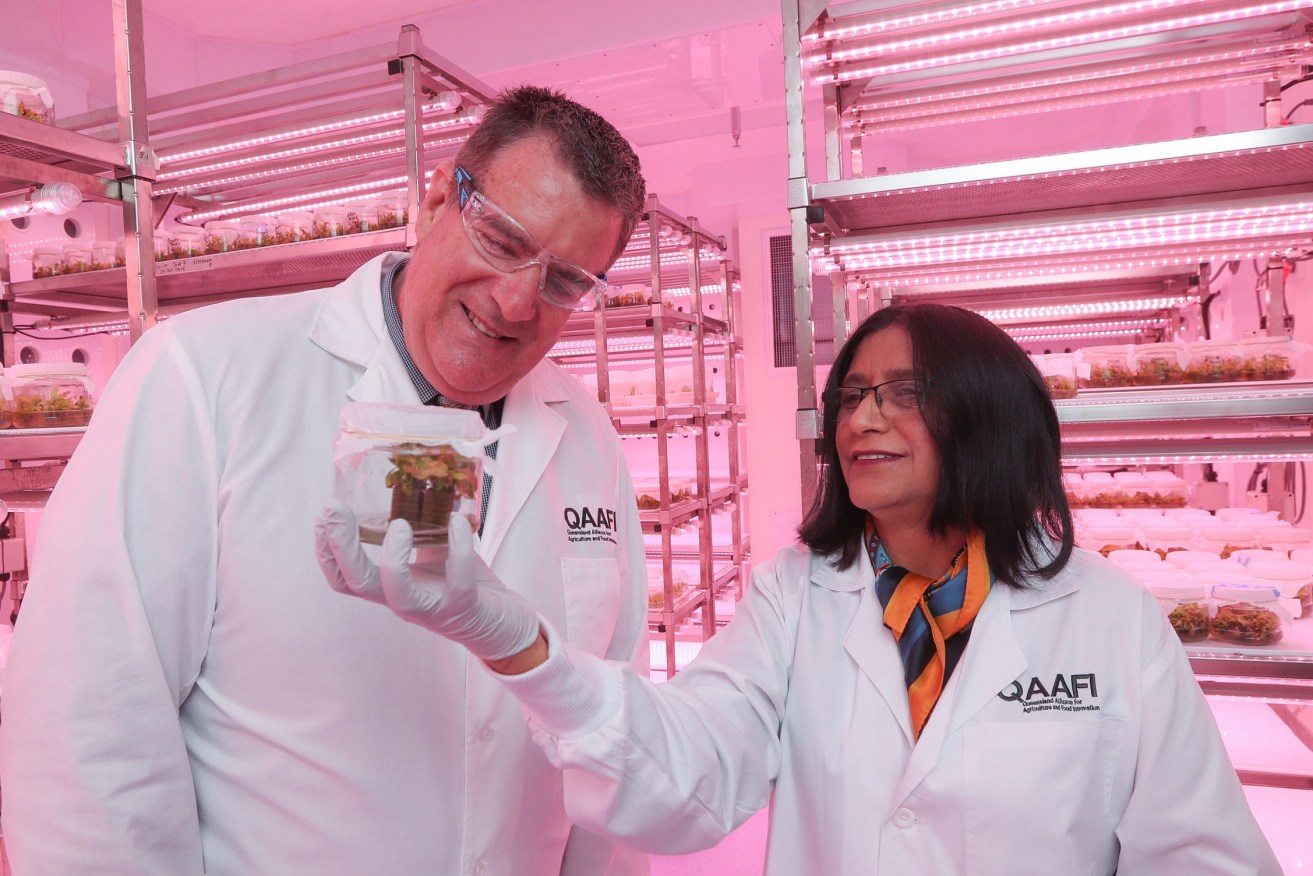Smashing it: New technology makes Queensland the toast of avocado industry
Queensland scientists are delivering technology that will potentially allow avocado volumes to explode, just as the horticulture industry gathers in Brisbane.


Agriculture Minister Mark Furner and Professor Neena Mitter in an avocado tissue culture lab at the University of Queensland. (Photo: Supplied).
Queensland has signalled its intention to be the epicentre of avocado production with locally developed technology promising to deliver greater volumes of the crop in quicker time and at lower cost to the grower.
The environment is also a winner according to University of Queensland scientists, who say the breakthrough find will save on water, fertilisers and pest management chemicals.
“This is a Queensland-owned and invented technology platform validated from lab to orchard, and is now progressing to commercial roll out,” Agricultural Minister Mark Furner said.
“Queensland produces the majority of Australia’s avocados and this innovation offers opportunities for growers across the state.”
The technology is centred on propagating rootstocks onto tissue culture in a laboratory before grafting them onto emerging trees in the field.
The tissue culture technology allows for up to 500 times more plants to be grown from a single cutting in 10-12 months – significantly reducing both resources required and the time it currently takes to produce a plant for sale in an orchard.
The process is considered to a be a ‘world-first’ using Hass avocado varieties.
Economic modelling conducted by the University of Southern Queensland with the Department of Agriculture and Fisheries as part of the project suggests that the tissue culture technology offers a potential 21 per cent return on investment to avocado growers.
“Trials show that the clonal tissue culture rootstocks are yielding high-quality fruits in the field,” said project leader Professor Neena Mitter, director of UQ’s Centre for Horticultural Science.
“We have been successful in rooting multiple industry-relevant avocado rootstocks using our meristem or plant stem cells-based approach to multiply plants.”
Most importantly for consumers, she said, the fruit from the tissue culture process was “tasty, healthy, and disease-free”.
In trials funded by the Queensland Government’s Advance Queensland Innovation Partnerships, tissue culture plants produced in a laboratory and then grafted with Australia’s main avocado variety, Hass, have been successfully established in fields in Bundaberg, Tully and Lakeland and two locations in Western Australia – Pemberton and Busselton.
Childers avocado grower Lachlan Donovan has been growing laboratory-propagated avocado trees for the past three years and said that he was pleased with the tree growth and harvest.
“In the past the delay between ordering new trees and planting has been two to three years,” Donovan said.
“The biggest advantage of this new technology for us is to be able to get desired rootstocks and varieties into production quickly.”
A survey of Australian avocado industry members undertaken by Central Queensland University indicated that 72 per cent cannot access enough plants and nearly half indicated they already have the skills and knowledge to work with tissue culture trees.
The global avocado market was valued at USD 9.14 billion in 2020, with consumers embracing the health benefits of the fruit, which contains fibre, healthy fats and important nutrients.
“This is a sustainable technology that reduces the need for water, fertilisers, pest management processes and farming land used to produce rootstocks,” Mitter said.
“With traditional avocado propagation, trees must be grown in fields for seed production.
“Another advantage with tissue culture propagation, particularly in this day and age, is that the movement of soil and the biosecurity risks this entails can be eliminated.”
The announcement comes as more than 2000 delegates from across the fresh produce supply chain gather in Brisbane for the annual Hort Connections conference, the industry’s largest event.
Numbers would have been higher if not for Covid lockdowns in Victoria, which saw delegates and trade exhibitors from the southern state pull out from attending days before doors opened at the Brisbane Convention and Exhibition Centre at Southbank.
Some observers put numbers at 20 per cent lower than expected.









